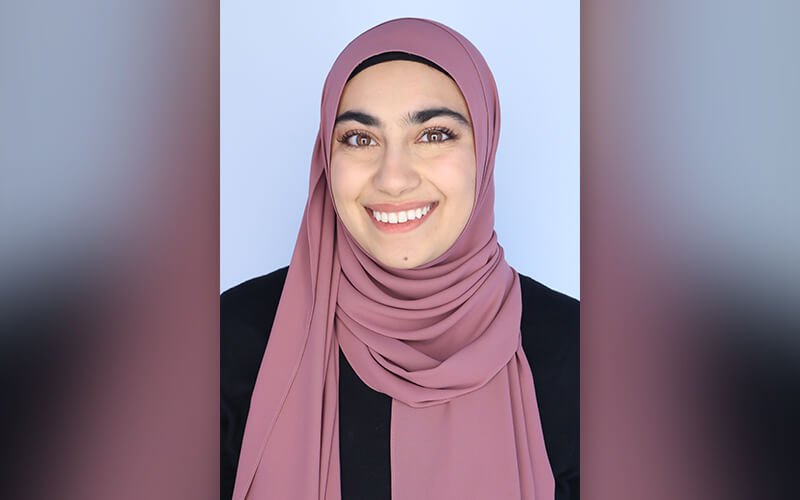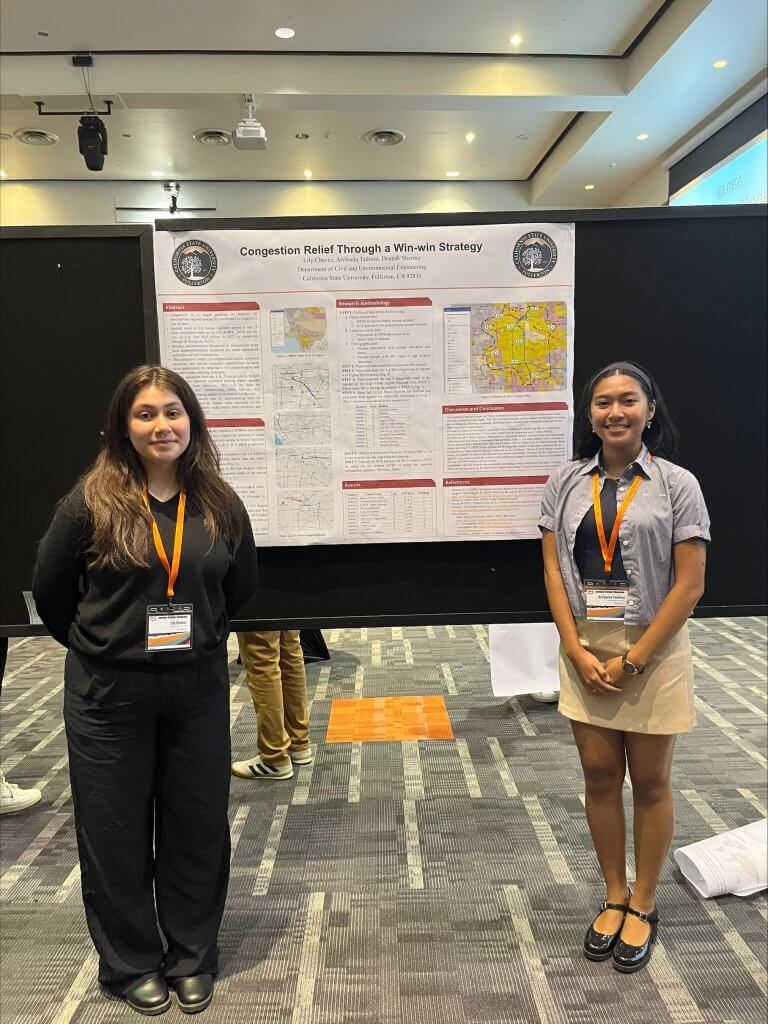
The collaborative nature of Cal State Fullerton research is making waves in the field of transportation, as demonstrated by civil and environmental engineering senior Hafsa Farooqui’s recent achievement. Farooqui earned the prestigious Dwight D. Eisenhower Transportation Fellowship for her groundbreaking work on transit-oriented development, a key area in sustainable urban mobility.
Administered by the U.S. Department of Transportation, the Eisenhower Fellowship is highly competitive and aimed at supporting students who are dedicated to innovative transportation solutions that improve public transit systems.
Deepak Sharma, professor of civil and environmental engineering and Farooqui’s faculty mentor, emphasized how this fellowship reflects Farooqui’s dedication and the quality education at CSUF.
“The Eisenhower Fellowship is a recognition of Hafsa’s outstanding research and her commitment to addressing critical issues in public transportation. This fellowship is a direct reflection of the rigorous academic environment at CSUF, which fosters collaborative research and prepares students to tackle real-world challenges in sustainable urban mobility,” Sharma said.
Farooqui’s research focuses on the implementation of transit-oriented development, with emphases on construction costs, infrastructure integration, equity, property taxes and rate of return. Specifically, Farooqui’s work examines the integration of urban planning strategies with public transit systems to maximize accessibility, reduce traffic congestion and foster the development of sustainable, vibrant communities.

Her work, however, was not carried out in isolation. Farooqui credits much of her success to the collaborative efforts of her peers, particularly Lily Chavez and Archaela Tadiosa, fellow civil and environmental engineering students in Sharma’s lab. Both students also participated in the Summer Undergraduate Research Academy, offered by the Undergraduate Research Opportunity Center.
“Lily and Archaela worked tirelessly to provide this opportunity to myself and my fellow classmates. Without them, I could not have known about the program and would not have applied,” Farooqui said. “I appreciate the diversity of opportunity UROC provides for its students.”
The collaborative research, conducted through SUReA, has led to significant findings. Chavez and Tadiosa focused on demographic and equity data within the LA Metro corridor, working to optimize strategies that increase ridership and reduce traffic congestion. Their research aligns closely with Farooqui’s goals of improving transit-oriented development, and their collective contributions helped create a stronger foundation for Farooqui’s Eisenhower Fellowship application.
For Chavez, the opportunity to contribute to research on public transportation was a deeply personal one. Growing up in Salinas, California, where public transportation was essential, Chavez became passionate about improving transit systems for underserved communities.
“SUReA offered support in helping research students like me successfully get more out of their research,” Chavez said. “The workshops helped me learn different skills and techniques to be a better researcher.”
Sharma also reflected on the broader impact of SUReA, noting how it not only helps students like Farooqui earn a prestigious fellowship, but also enhances his own research and that of his students.
“Through programs like SUReA, I have been able to advance my own research while also expanding the opportunities available to my students,” he said. “The funding provided by SUReA has been invaluable in enabling my students to contribute to meaningful transportation research and lead to impactful solutions.”
Nicole Bonuso, director of UROC, also praised the program’s focus on fostering collaborative research and real-world applications.
“These students exemplify the incredible potential of UROC’s programs,” Bonuso said. “Through their research and collaboration with peers, they’ve built a strong foundation of skills outside of their research pursuits, including teamwork and communication. It’s been a privilege to watch them grow as scholars.”
Farooqui’s selection for the Dwight D. Eisenhower Fellowship serves as a powerful reminder of the profound impact that UROC’s collaborative environment, combined with dedicated faculty mentorship, has on student success. Through the support of programs like SUReA and the guidance of mentors such as Sharma, students are equipped with the tools and knowledge needed to tackle pressing challenges.
The combined efforts of Farooqui, Chavez and Tadiosa further demonstrate how teamwork and peer engagement drive impactful research, preparing the next generation of leaders to develop sustainable solutions for the future.
For more information on programs and opportunities, visit the UROC website.